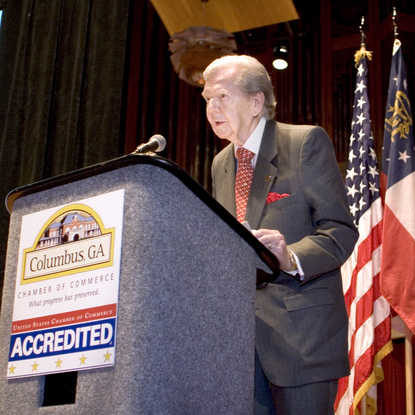You need long-term focus too.
I have zero patience. If you know me, you know that statement to be true. In fact, if anything, it is an understatement. I hate lines, slow drivers, idiots, laziness, waiting, looking for things, and the list goes on and on….. Now is almost too late.
Last week I wrote that half the battle of success in sales is having a long-term focus. (Read it here.) I put forth the idea that without big goals and a clear vision of why you are doing what you are doing, the little annoyances and setbacks would drive you out of the business. That concept was hard for me to learn. I don’t always think way ahead. If some people are checkers players and others are better at chess, I lean more towards Candy Land.
Today’s subject was much easier for me: The other half of the battle to sales success is having short-term urgency. This is something I can relate to instantly and didn’t need a lot of coaching on. That’s not true for about half the people I’ve hired in my career. It seems that the vast majority of people have a major bias towards one or the other. Very few are adept in both.
Author and leadership expert, John Maxwell believes that Today Matters. In fact, he is so adamant on the subject he wrote a book by that name on the subject. 
![]()
If you haven’t read it, you are missing a very foundational part in your personal development. The thesis of the book is that the key to your success (or lack thereof) can be found in your daily agenda. We each get the same number of hours in the day. Some people choose to invest that time into activities that pay high returns. Others choose to watch “Keeping Up With The Kardashians”…. Or are on level 197 on Candy Crush….
If it is true that your success can be found in your daily agenda, then all I need to predict your success is one day with you. If you let me follow you from the moment you wake up until the moment your eyes close again that evening, I believe I could predict with great precision your chances for success. I don’t even need to interact with you. All I need to do is observe you. Here is what I would be paying attention to:
The 14 Keys To Daily Success
- What time did you start? – “I’m not a morning person” is just an excuse to be lazy. I know I will receive hate mail for that statement, but it’s the truth. There have been numerous studies showing that there is a direct correlation between income level and starting the day early. Your choice, sleep or success?
- Did you hit the snooze alarm? -If you hit the snooze alarm you just started your day with a lie. You set your alarm for 5:00 a.m but stayed in bed until 5:30? Why? Just set your alarm for 5:30 and then get right out of bed. Quick tip: If you struggle with this, put your alarm clock across the room so that you have to get out of bed to turn it off.
- Did you exercise? -“Ain’t nobody got time to exercise,” said every overweight, sick, tired, diabetic person. How do I know? Because I’ve been there. Can I tell you a secret? I still hate going to the gym. But I’ve decided that I hate being on blood pressure and diabetes medicine worse. You?
- What did you eat? -See “Did you exercise?” If you struggle with either of these areas, I can’t recommend Tim Farriss’ book “The 4 Hour Body: An Uncommon Guide to Rapid Fat-Loss, Incredible Sex, and Becoming Superhuman” highly enough.


- Did you have a plan for the day, or did you allow it to just happen? -Wake up employed!!! If you don’t map out your plan the day before, your chances for executing a sound strategy approach zero.
- Who did you hang out with? – It is true that birds of a feather flock together. Choose who you allow into your life carefully. If you lie down with dogs, don’t be surprised if you wind up with fleas….
- What books/blogs did you read and podcasts/audio programs did you listen to. -The fact you’re reading this blog gives me great hope for your success!!!! Now go read/listen to Brian Tracy, Jim Rhon, Tony Robbins, Tom Hopkins, Zig Ziglar, etc. One of my mentors Les Heinsen said, “All growth begins with personal growth.” (Listen to my interview with Les here.)
- What was your attitude like most of the day? -It’s ok to allow yourself to get bummed or mad occasionally if the situation really warrants it. The question is how long will you allow yourself to stay in that mood. Every minute you do, you are losing money. Again, your choice. You choose your attitude.
- What was your sense of urgency? -Did you walk quickly? Did you wait on hold or decide to call back later? Did you hang out at the office to talk to someone until they came out of their meeting? Did you waste time talking about last nights results on “So You Think You Can Dance?” The day is wasting!!! Get moving!
- How did you treat people that can’t help you? -Again, there have been numerous studies showing a direct correlation between good manners and sales success. When I am looking to fill a sales management position, I always take the candidate to lunch or dinner. I then watch how that person interacts with the staff at the restaurant. If they are dismissive or rude to the server, hostess, busboy, etc., I remove them from my candidate list. It’s that simple.
- Did you find a way to do at least some prospecting in the day? -I don’t care how busy you were, if you didn’t prospect at all, (even for just one day) I am worried about your chances for success. There really wasn’t anybody that you ran into all day that could have given you a referral? You didn’t have time to call at least one prospect from your car between meetings? Memorize this: If you don’t prospect every single day, you won’t ever make the kind of money you want.
- Did you do anything to strengthen your spiritual life? -Just like diet and exercise, this takes DAILY practice. Your spiritual muscles atrophy at least as fast as your physical muscles. Don’t allow yourself to become financially wealthy but spiritually bankrupt. I’ve been there too and it isn’t a pretty sight…..
- How much TV did you watch? -The average American spends 4 hours a day in front of their TV. The average 45-year-old American has a net worth of negative $45,000. Coincidence? I doubt it….. Zig Ziglar called the TV the greatest wealth destroyer ever invented. It’s hard to argue with him…..
- How much sleep did you get? -You need sleep. Regardless of what you think, your body really does need at least 7 hours of sleep each day. Many people need more. The average American gets somewhere between 5-6 hours. No wonder Starbucks makes so much money! Caffeine and adrenaline might work in the short term, but the reality is that you still won’t be near as creative, persuasive, and sharp if you are tired. Turn off Sports Center and go to bed already!!!!
If I observed you and those 14 things, I have no doubt that it would be obvious where your sales career was headed.


















